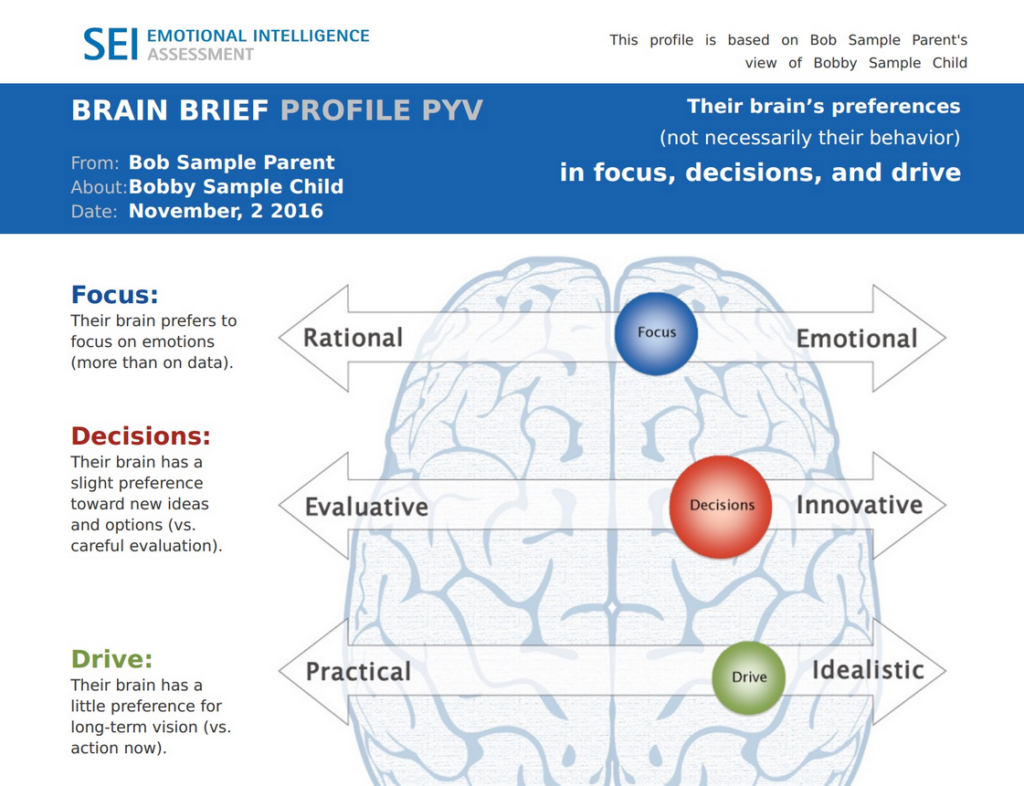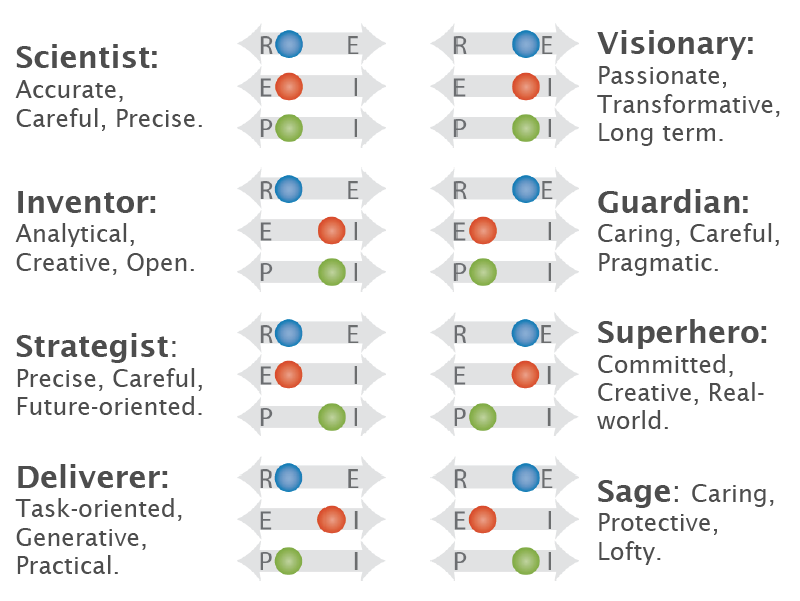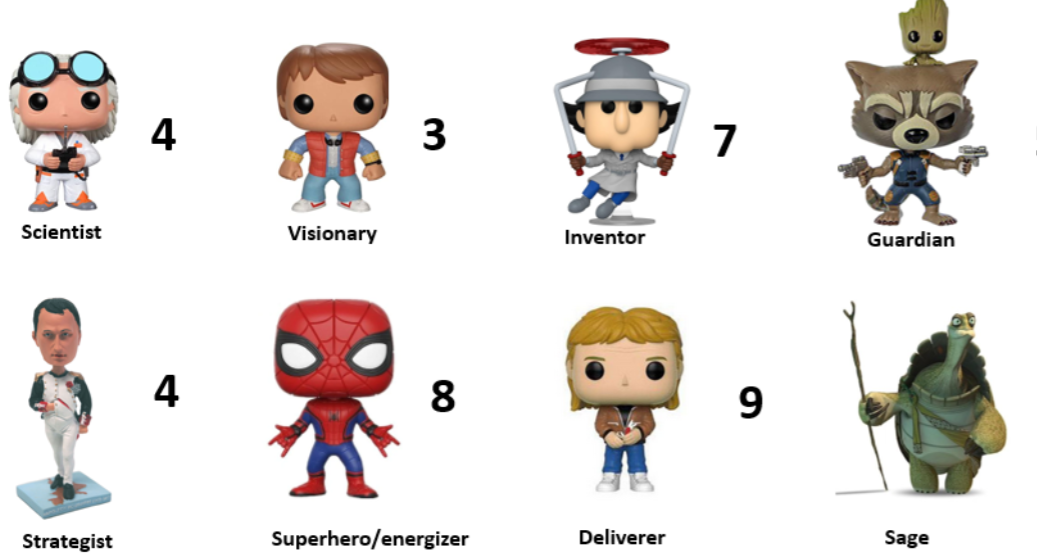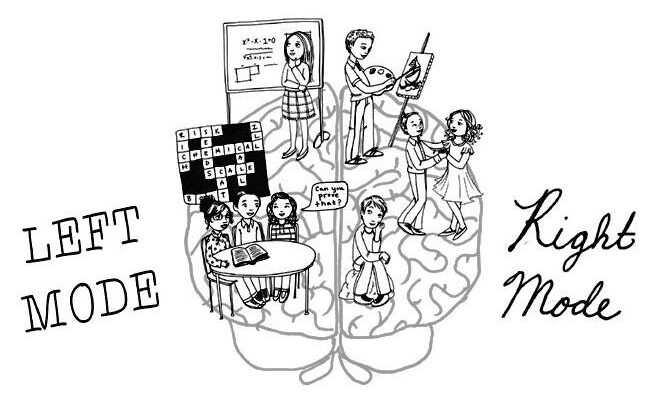How many times did you feel like doing what really matches your strenghts? And how many times, instead, did you feel like working in a “foreign” country (e.g. like driving on the opposite side)? How many times did you feel frustrated as your boss/colleagues were focused on the day-by-day, without a vision? Or viceversa? Did you ever experience a very “cold” colleague, eding up the conversation thinking they had personal issues with you? These seem to be disconnected questions… while there is a specific common ground and precise science explaining how our brains prefer to work! Let’s go deeper.
As you saw in the Part I of this article, I introduced EQ to Amazon teams and we did some practice thanks to two different tools (i.e. UEQ report and TFA Cards). After “unlocking” teams’ EQ, we went through the Brain Brief Profiles (BBP) of each team member in order to (i) enhance self and mutual awareness and (ii) improve communication between team members and/or managers.
Brain Brief Profiles provide a smart and simple way to practice EQ and to facilitate team building. Based on the SEI questionnaire results, this 1-page report shows our brain style, i.e. the potential that your brain has and which is the most effective / preferred way of working, not necessarily being the behavior. This outcome refers to three main areas:
1. Focus (how we collect data): do you prefer collecting analytical or emotional data?
2. Decision (how we take decisions): do you tend to protect or to innovate?
3. Drive (what motivates us): are you usually motivated by the practical or the idealistic?
Based on the results of these three areas (i.e. where we are positioned), there is a profile description, also identified by one funny character.


After providing the report to each team member and to the managers, I asked them to divide in sub-groups and to run this simple exercise, by asking the following powerful questions:
Individual. What are the three benefits of your Brain Style? What do you like about your own Brain Style?
Individual. At the same time, there are risks for every style. These are often connected to the benefits. Just as the Deliverer gets tasks accomplished, she or he might tend to ignore or hurt people in the process. What are three “problems” or risks you see in your own style?
Group. Ask feedback to 3 people working closely with you. How do they see you?
These questions are key to trigger the reflection about potential scenarios we could face. E.g. if you are on the rational side, which are the elements you should consider while talking with a colleague? Why both emotional and rational data are important? What are you “missing” today? Being an evaluative profile, what could be the most effective way to communicate to a wide audience, most probably populated by some innovative styles?
Here something magic happened: all team members started discussing about mutual awareness and the time has flown by… they did not want to stop talking and knowing each other better! Most of the people recognized themselves in the profiles. Through this exercise, they understood the importance of differences and individuality. I also shared a detailed description of each character, explaining (1) how each character is seen by others and (2) tips on how to communicate with that specific profile.
Depending on the profiles mix, communication should be adapted. E.g. a “practical” manager recognized the importance of focusing on the vision and to communicate it in a clear way, for all the team members being more visionaries and more motivated by the long term goals. This was also a key chance for the manager to have an overview of the whole team and profiles distribution over projects, questioning himself about new ways to value individual styles and to diversify the team. Below one example, coming from 1 team:

We surveyed the participants of the workshop to have their feedback and inform the following sessions. 100% of the audience confirmed the BBP report was reliable and actionable.
Curious about your brain style? Are you behaving coherently with your style? If not, you may not be optimally using all your brain’s strenghts!

No responses yet